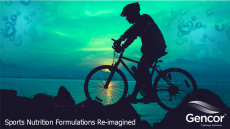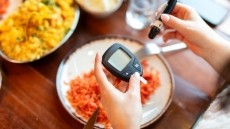Selenium supplements may boost heart health: Study
The sodium selenite supplements were found to increase levels of GPx-1, a selenium-dependent protein, according to in vitro and in vivo findings published in the December issue of the American Heart Journal.
Moreover, a plateau effect was observed after 12 weeks, regardless of the dose used.
“Although a dose-dependent increase in GPx-1 activity with lower concentrations of supplemental selenium has been described previously in individuals with selenium deficiency, we now demonstrate a ceiling effect with supplementation,” wrote lead author Renate Schnabel from Johannes Gutenberg-University in Mainz, Germany.
“This observation strengthens the postulate that GPx-1 levels could be used to adjust selenium supplementation in populations with relative selenium deficiency.”
Selenium levels have been falling in Europe since the EU imposed levies on wheat imports from the US, where soil selenium levels are high.
As a result, average intake of selenium in the UK has fallen from 60 to 34 micrograms per day, leading to calls from some to enrich soil and fertilizers with selenium to boost public consumption. Selenium-enriched fertilizers are used in Finland.
The European recommended daily intake (RDI) is 65 micrograms. The recommended EC Tolerable Upper Intake Level for selenium is 300 micrograms per day.
The role of selenium
According to background information in the journal, oxidative stress plays a key role in the progression of coronary artery disease (CAD), a condition where plaque builds up in the coronary arteries. It is the leading cause of death for men and women in the US, according to the National Heart, Lung and Blood Institute at the National Institutes of Health.
The body’s antioxidant defence system includes enzymes, such as superoxide dismutase (SOD) and glutathione peroxidases (GPx's). A form of the latter, GPx-1, has been reported to modulate vascular function, according to in vivo animal studies, said the researchers.
However, “the relevance of selenium supplementation on GPx-1 in coronary artery disease (CAD) needs to be established,” said Schnabel and her co-workers.
Study details
Two types of studies were performed – an in vitro human cell study and a prospective clinical trial.
The in vitro study involved incubating human coronary artery endothelial cells with different doses of different selenium compounds, including sodium selenite, Se-methylselenocysteine hydrochloride, and seleno-L-methionine. The first two types of selenium were associated with increases in GPx-1 protein activity in a dose-dependent manner.
In the human study, 465 patients with CAD were randomly assigned to receive daily sodium selenite supplements (200 and 500 micrograms) or placebo for 12 weeks. While the higher dose was associated with an increase in the GPx-1 activity during the first half of the study, as well as higher selenium levels in the blood, both doses led to a plateau of GPx-1 activity after 12 weeks.
No effects on endothelial function were observed.
“Our in vitro and in vivo findings consistently demonstrate that sodium selenite supplementation induces an increase in the activity of GPx-1, a selenoprotein prominent in antioxidant defense and cardiovascular protection,” wrote the researchers.
“These data should spur further investigations to elucidate whether enhanced GPx-1 activity achieved by selenium supplementation has a protective role in cardiovascular disease during long-term follow-up,” they concluded.
Source: American Heart Journal December 2008, Volume 156, Issue 6, Pages 1201.e1-1201.e11"Selenium supplementation improves antioxidant capacity in vitro and in vivo in patients with coronary artery disease: The SElenium Therapy in Coronary Artery disease Patients (SETCAP) Study"Authors: R. Schnabel, E. Lubos, C.M. Messow, C.R. Sinning, T. Zeller, P.S. Wild, D. Peetz, D.E. Handy, T. Munzel, J. Loscalzo, K.J. Lackner, S. Blankenberg














